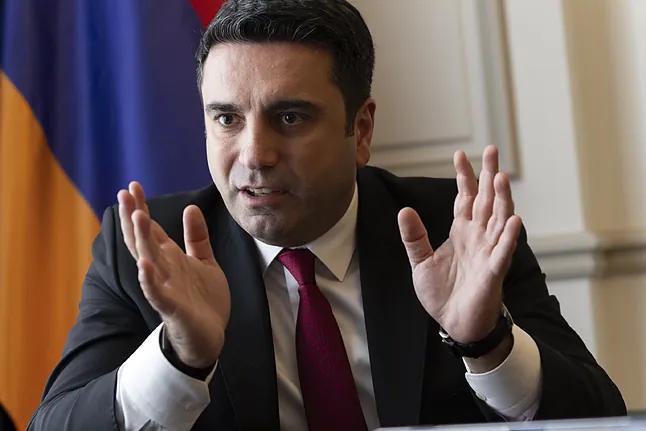A political scientist and well-versed in laws, Alen Simonyan has been linked since 2015 to the Civil Contract movement founded by the current head of the executive of his country, Nikol Pashinyan. Also an aspiring actor, radio and television presenter, the current head of the Armenian parliament followed Pashinyan when he opposed the strongman of those years, Serzh Sargsyan, and managed to displace him from power with the popular uprising of 2018.
Pashinyan has been governing the country since then, but during his tenure, Armenia has lost two wars against Azerbaijan (2020 and 2023) and control of the symbolic Azerbaijani territory of Nagorno-Karabakh, which many Armenians consider as significant to their history as Mount Ararat, now in possession of Turkey.
The local leader defends the theory of Real Armenia against that of Historical Armenia and has invested all his political capital in signing a peace treaty with Azerbaijan. Last August, both nations signed a joint declaration in the presence of U.S. President Donald Trump, which should serve as a prelude to that treaty. Yerevan admitted that it will facilitate the connection between Nakhchivan, the Azerbaijani exclave located west of its borders, and the main territory of that state. A route that should be managed by the Americans and has already been named Trump Route (TRIPP), as reported by Reuters.
It is this agreement that Trump referred to a few days ago when he claimed to have "stopped the war between Cambodia and Armenia" that "was just beginning and could have had serious consequences." An epic intervention where he confused the confrontation between Yerevan and Baku (Azerbaijan, not Cambodia) with the brief conflict that Phnom Penh fought against neighboring Thailand.
The pact has not been formalized, and the struggle between two adversaries who fought for decades remains so intense that they are still disputing even the words, as they did in the past with the names of cities in Nagorno-Karabakh.
